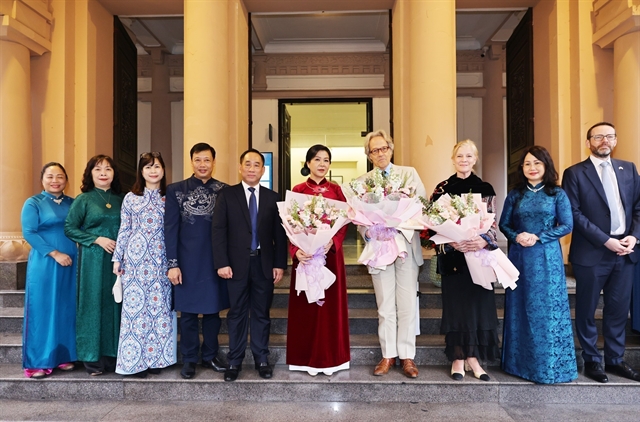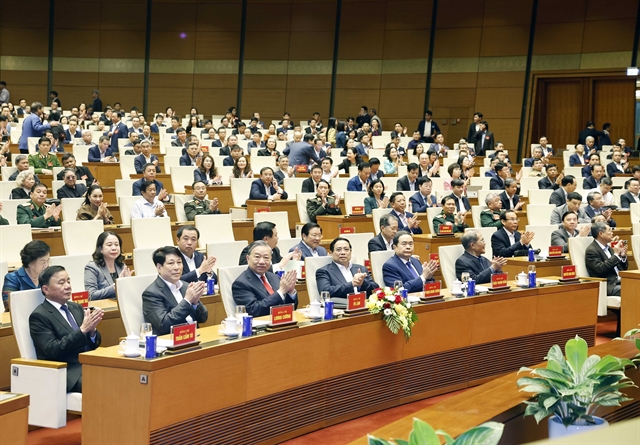 Media-OutReach Newswire
Media-OutReach Newswire

HONG KONG,CHINA - Media OutReach - 13 September 2018 -Cushman & Wakefield, a global leader in commercial real estateservices, noted a change in momentum in the residential and property investmentmarkets in Q3, as the property transaction volume dropped in the face ofgrowing headwinds due to rising interest rates, China-U.S. trade tensions and localgovernment policies. Although property prices arenot expected to drop significantly in the near term, should the above factors,especially the on-going trade tensions, impact the local economy, a pricecorrection will likely begin in 2019.
At 48,431 S&Ps(Property Sales and Purchase Agreements), the first half of 2018 recorded thehighest H1 transaction volume since 2012 (56,047 S&Ps), as the marketseemed to have grown accustomed to the policy factors during the past six yearsand performed robustly under strong fundamentals. However, since the U.S. andChina began to cross swords over bilateral trade in June, local propertytransactions fell from a high of 9,520 S&Ps in June - the highest levelsince September 2016 - to 8,796 in July and further to 6,966 in August, with adrop as much as 26.8%.
Mr Alva To, Cushman & Wakefield's VicePresident, Greater China & Head of Consulting, Greater China commented, "Sales volume willdrop further in September and should stay at 5,500 S&Ps on average permonth for Q4."
Despite falling sales, home prices continuedto grow but the rate of increase has slowed. As of September, the price of representativeestates such as City One Shatin and Taikoo Shing went upby 16.1% and 18% YTD respectively, while increases of 15.7% in ResidenceBel-Air and 12.4% in The Harbourside were recorded.
In fact, accordingto the Hong Kong Residential Market - Gathering Storm Clouds? reportlaunched by Cushman & Wakefield today, apart from trade tensions, rateshikes and a new government measure in the form of vacancy tax are also playinginto blurring the outlook of the primary sales market for the remainder of 2018and into 2019. Mr Reed Hatcher, Cushman &Wakefield's Director and Head of Research Hong Kong and author of the report, explainedthe implications:
Risinginterest rates
The rise in borrowing costs may not affect overall housingprices initially. However, home prices may come under pressure if a 100bpsmortgage rate hike is assumed by the end of 2019,as the increase in monthly mortgage payments will push affordability ratios upand result in more buyers failing the stress test, which in turn could reducetransaction volumes and cool investment sentiment.
Growingtrade tensions
The China-U.S. trade tensions is likely, in the first instance, toaffect the local trade and logistics sector, which accounted for 22% of Hong Kong'sGDP and one-fifth of the labor workforce as of2016. Although the HKSAR government has previously estimated that the trade tensions could drive GDP down by 0.1 to 0.2 percentage points over thenear term, the longerterm impact could be more severe if the situation worsens. Meanwhile,resulting weakness in the RMB could dampen mainlandChinese buying power for Hong Kong homes, while the strugglesin the stock market could impact the buying sentiment.
Thevacancy tax
The current supply of unsold units (around9,000 units in H1 2018 according to the Buildings Department) is unlikely to providerelief to the overall market. Even if the tax will accelerate the sale of massresidential units, the supply in the near term are insufficient todampen the market. However, the tax may prompt a change in pricing strategiesas developers may push to obtain pre-sale approval for projects -- of more than 15,000 units that have commenced construction in 2016 or before -- ina bid to avoid the vacancy tax.
MrHatcher commented, "Under the above threefactors, more potential home buyers will adopt a wait-and-see approach amidrising uncertainties and transaction volumes are expected to fall in theremainder of 2018. On the other hand, limited supply and some pent-up demandwill continue to support home prices, and they are expected to be fairly stablethrough year end."
MrTo added, "However, we may see a pricecorrection in 2019 if the current trade tensions escalate into a full-blowntrade war, given the strong economic ties between Hong Kong and the Mainland.The slowdown in the Mainland economy will dampen purchase sentiment and weighon local home prices, which could drop as much as 10% - a range that depends heavily on how the trade war pans out."
As in theresidential market, the propertyinvestment market lost a bit of momentum in Q3, which recorded only 64 major transactions (each with a consideration of over HK$100million) so far in thequarter. Although around 80 major deals are expected by the end of September,it reached just half the transaction volume in Q2, which showed that investorswere also growing wary of the potential impact of approaching headwinds on theresidential market, resulting in fewer and slower sales.
The total consideration recorded in Q3 so farwas HK$37.8 billion, just more than half the considerations in Q2. Mr Tom Ko, Cushman & Wakefield'sExecutive Director, Capital Markets in Hong Kong, commented, "The unitrate of investment class assets is still stable. The market saw no panic sales,but buyers, especially seasoned investors, became more prudent."
Albeit with fewer transactions, lesser considerationsand smaller average deal sizes, the distribution pattern of capital in Q3 wassimilar to that in Q2, which was again dominated by a preference for luxuryresidential. Notable transactions in the quarter included two en-bloc officedeals (8 Observatory Road & Octa Tower) showing that office pricing remainsfirm and is able to withstand the change in the market sentiment due to thecontinued positive outlook for the sector.
Mr Ko said, "The on-going trade tensions will bringabout the biggest uncertainty to the property market. Should the tensionsescalate, the investment market will see a bigger drop in transaction volumesthan the residential market, as seasoned investors are generally more sensitiveto the change in international and domestic factors. However, if the currentcircumstances remain unchanged until year end, we still believe the transactionvolume and considerations for the whole year will surpass the record of 2017,and developments in Q4 will provide more clues for an outlook of the market in2019."
About Cushman & Wakefield
Cushman & Wakefield (NYSE: CWK) is a leading global real estateservices firm that delivers exceptional value by putting ideas into action forreal estate occupiers and owners. Cushman & Wakefield is among the largestreal estate services firms with 48,000 employees in approximately 400 officesand 70 countries. Across Greater China, there are 20 offices servicing thelocal market. The company won four top awards in the Euromoney Survey 2017 in categories of Overall, Valuation,Agency Letting/Sales andResearch in China. In 2017, the firm had revenue of $6.9 billion across coreservices of property, facilities and project management, leasing, capitalmarkets, advisory and other services. To learn more, visit www.cushwakecentennial.com, www.cushmanwakefield.com.hk or follow us onLinkedIn (https://www.linkedin.com/company/cushman-&-wakefield-greater-china)




